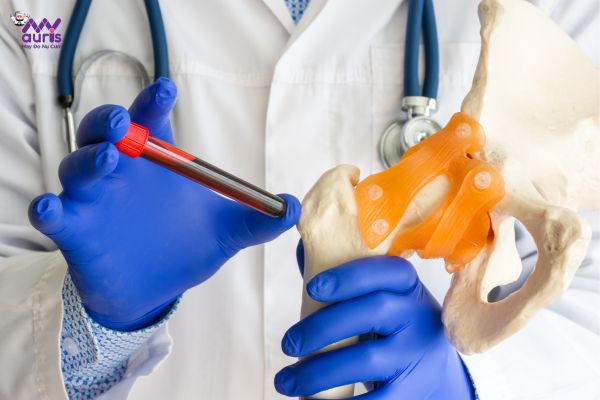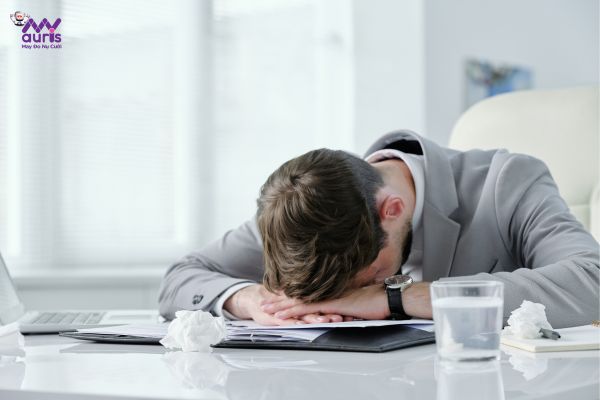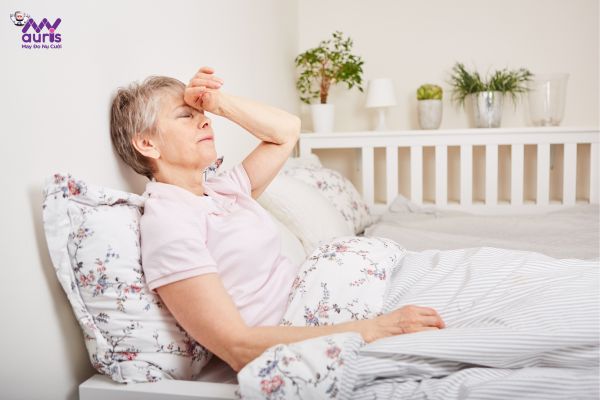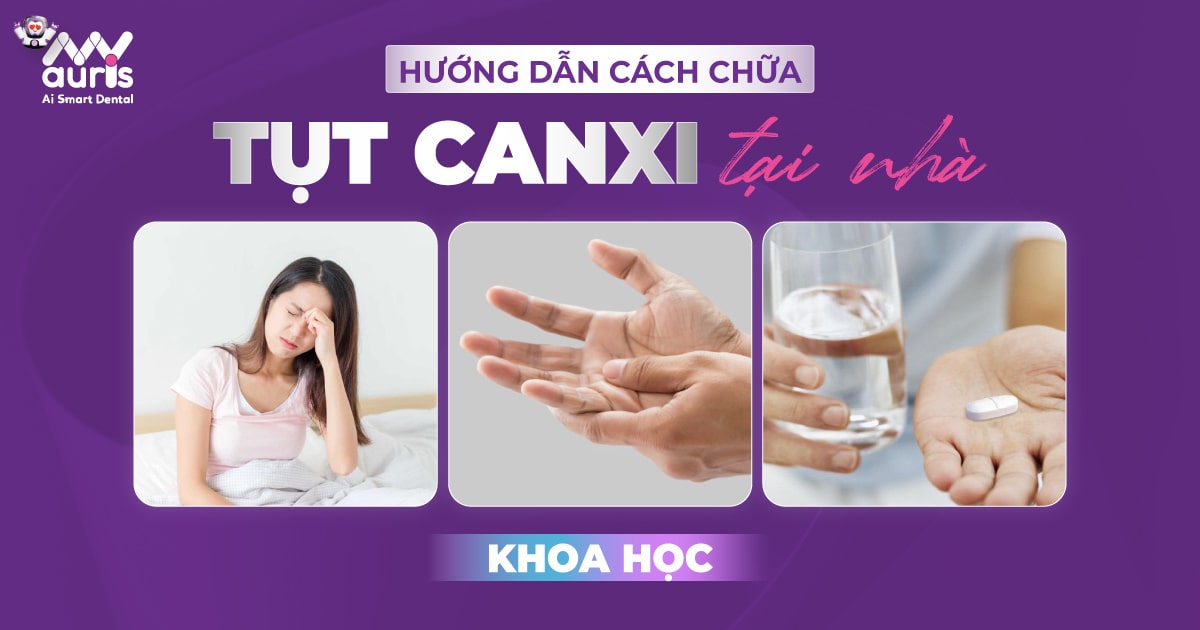Calcium is an essential mineral for the development and strength of bones, joints, teeth as well as participating in many other activities of the body. Once the calcium content in the blood drops lower than normal, it will cause calcium deficiency. If emergency and first aid are not given promptly, it can be life-threatening. So to know how to treat calcium deficiency at home, let’s find out with My Auris through the following article.
What is calcium loss?
Calcium loss is also known as hypocalcemia – scientific name is hypocalcemia. This condition is a common electrolyte disorder when the amount of calcium in the body’s blood is less than the normal level. To be more precise, this is a health disorder that occurs when total serum calcium levels are at 8.8 mg/dL (

Symptoms of calcium deficiency
Hypocalcemia is a common condition that can occur in both children and adults. And the symptoms that appear will vary depending on age.
Symptoms of calcium hypocalcemia in adults
For adults However, once the symptoms are clear, it means the calcium loss has become serious. Some symptoms of calcium loss in adults include: Frequently experiencing muscle cramps and cramps. withdrawal
Symptoms of calcium deficiency in children
For infants and children under 5 years old, the phenomenon of calcium deficiency. Calcium is often recognized through unusual symptoms such as frequent discomfort, crying, falling asleep easily,anorexia and stop breastfeeding.
For children aged 5 years and older, there are similar symptoms to adults, especially signs of facial tendon spasms and wrist contractures:
- Facial bone tendon reflex: is an unconscious facial muscle twitching reflex when using a hand to gently tap on the sensory nerve in the face – the area located near the child’s ear canal.
- Wrist contraction reflex
Symptoms of acute calcium loss
Acute calcium loss occurs when Blood calcium index is at an alarming level, lower than 7mg/dl. And it can be detected through the following symptoms:
- Patients with generalized seizures
- Patients have twitching of lip and facial muscles and pain all over the body.
- Legs have muscle tension, can be straightened or bent, stiffened

Symptoms of calcium depletion, helping people recognize and take appropriate first aid measures for the patient.
How to treat calcium loss at home
Even though calcium loss is a common and common condition in many people, don’t be subjective. Because if not given first aid and emergency treatment promptly, it will be life-threatening. When you have a relative or discover that someone has low calcium, you can apply some of the following methods:
- First, you must calm down and take the patient to a cool place to rest
- Call an ambulance. While waiting for the ambulance, try to keep the patient awake by patting both cheeks. If the patient faints, press the philtrum point (the point located between the nose and mouth) to wake the patient.
- Give the patient calcium supplements, it is best to use calcium pills in effervescent form, which are easy to dissolve and have fast effects. If the patient faints or their jaw stiffens, try giving the patient medicine with a spoon.
- When the ambulance arrives, let qualified medical personnel perform first aid and take the patient to the hospital. After receiving emergency treatment, relatives should let the patient stay in the hospital for the rest of the day or 1 day to monitor whether the health condition is stable.

Thus, when detecting a patient with low calcium, take the patient to a cool place to rest and give calcium supplements while waiting for medical staff to arrive.
Prevention of hypocalcemia
To avoid recurrence of calcium loss as well as prevent this condition, the most effective measure is to provide enough calcium to the body through nutrition. as well as daily supplements.
- Build a nutritional diet, eat a calcium-rich diet: a diet rich in nutrients, diverse in nutrients, especially adding lots of calcium-rich foods such as milk, eggs, cheese, seafood, green vegetables and fruits,…
- Calcium supplementation: if calcium has decreased, the patient should take the medication according to the doctor’s instructions and dosage. In cases where you want to prevent calcium loss and want to supplement, you can see a doctor or medical staff at a pharmacy to learn and choose the appropriate supplement.
- Do not take medication beyond the threshold: in any situation, you should not consume more than 2500 mg of calcium/day or more than 500 mg of calcium/dose because consuming too much calcium can cause malabsorption and kidney stones.
- Drink calcium at the right time: digestive acid secreted by the stomach when digesting food helps the body absorb calcium better. Therefore, the addition of calcium medications should be taken immediately during meals to increase absorption.
- Maintain a healthy lifestyle: do not use drinks containing stimulants, because these substances have the ability to reduce calcium absorption in the body. Therefore, avoid using coffee, alcoholic beverages, alcohol, etc.

Hopefully the information in the article about how to treat calcium deficiency at home helps people gain more experience. From there, it was discovered that the patient could calmly give first aid at home, ensuring the patient’s health.
Anh Thy





